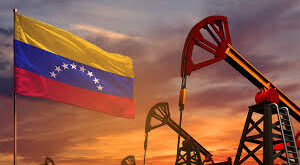If New Delhi stops importing oil from Iran in view of the US sanctions reimposed on the Persian Gulf country. Indian oil refiners will have to find substitutes for around 0.5 million barrels of Iranian crude per day (around 10% of the country’s total oil imports). a sourcing process that might bring in instability to their business plans. There will be immediate implications of the US’ move for hydrocarbon explorer-producer ONGC Videsh. which might find it difficult to receive exploration services (drilling. seismic surveys. well-testing etc) from top-end firms. which are mostly American.
While the Indian government’s official stance is clearly that the country won’t recognise the unilateral US sanctions (it is bound by only the UN measures). Reuters reported on Thursday that the oil ministry has asked refiners to prepare for a “drastic reduction or zero“ imports of Iranian oil from November. According to the news agency. “… US ambassador to the United Nations Nikki Haley has told Indian Prime Minister Narendra Modi to lessen dependence on Iranian oil.
Haley. currently in Delhi. spoke with US secretary of state Mike Pompeo early on Wednesday. before meeting Modi.“
Earlier. the US had toughened its stance. saying it expected “zero“ import of Iranian oil from all countries including China and India. the two biggest importers of oil from the Islamic country. The sanctions are to be operational in November sans any exemptions. A US official was quoted saying “companies“ dealing with Iran will also face sanctions in the form of curtailed access to US financial system or reduced business with US allies.
“So. say an Indian refiner imports from Iran. that company may not be allowed to deal with US-based banks. service providers or oil exporters.“ said Deepak Mahurkar. partner and leader. oil and gas. PwC India.
An OVL official said. requesting anonymity. “The first challenge that OVL may face is in getting good service providers (for Farzad-B). Most of these companies are American and they may not participate.“ The field in the Farsi block. which was discovered by India’s OVL 10 years ago. has in-place gas reserve of 21.7 trillion cubic feet (tcf). of which 12.5 tcf are recoverable. However. the deal has been delayed as the two countries could not agree on a price and a rate of return for the OVL-led consortium’s investments. The other partners of the consortium include Indian Oil and Oil India. While under the initial plan. OVL was to invest $11 billion in the block for exploration and building a liquefied natural gas plant for transportation to India. Iran later offered to take the entire gas produced and so the Indian firm may end up spending $4 billion only for exploration.
US President Donald Trump had decided to withdraw from JCPOA. also called the Iran Nuclear Agreement. which was agreed upon in 2015 under which Tehran was to curb its nuclear programmes in return of lifting of financial sanctions. The UK. France. Germany. Russia and China are also parties to JCPOA.
A government official. however. has clarified to FE that India still has not got any communication from the US in this regard. “We cannot react on news and in any case a decision on the issue will be taken jointly by the petroleum ministry. ministry of external affairs and the Prime Minister’s Office.“ the official added.
 Iran Energy News Oil, Gas, Petrochemical and Energy Field Specialized Channel
Iran Energy News Oil, Gas, Petrochemical and Energy Field Specialized Channel




